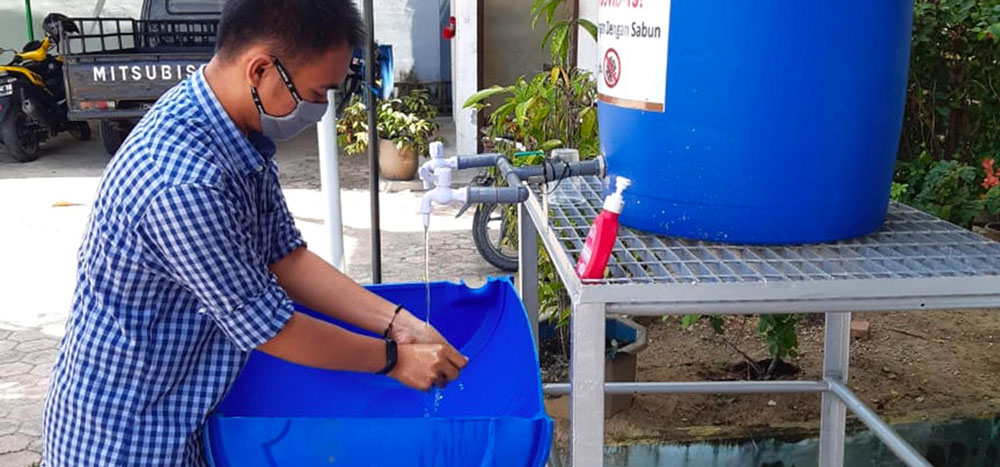
Access to clean water and sanitation is a fundamental human right, and this need has been made all the more urgent by the threat of COVID-19. Good hygiene, including hand washing with clean water, is essential in our defense against the virus and other viral diseases.
At the same time, this time also highlights how the private sector can play an essential role in fighting the pandemic by improving Water, Sanitation, and Hygiene (WASH) facilities for employees and the community. And we acknowledge that as a responsibility.
As we began to understand the threat posed by COVID-19, and how critical hygiene is in preventing the spread, we knew we had to escalate our efforts very quickly to respond to the situation. After all, protecting our neighbors is not only the responsible thing to do--it is a necessity.
Local communities are an integral part of our day to day operations, providing the needed goods and services, not to mention the daily interactions with our employees and contractors. If we do not take precautions to protect them, it is as good as failing to defend ourselves.
Speaking about ourselves, one of the first things we do is protect the employee. We took best practice mitigation measures: temperature screening, app-based location tracking of employees, quarantine protocols, a daily reminder on handwashing and personal hygiene, and also providing vitamin to maintain their immunity.
At one of our biggest mills in Sumatra, one of the key initiatives is providing portable wash basins from recycled materials. We usually send those plastic containers back to their suppliers during regular practices, but it has been proven not easy in these situations. So we got creative and used it as part of the solution.
We also distribute these washbasins to the communities in nearby villages. We place them in public areas where the villagers tend to congregate, such as markets and at the local village halls. These wash basins are accompanied by public education signs encouraging frequent and correct hand washing as a measure to protect against COVID-19. The project is ongoing, and we are planning to replicate the project in other mills across the country.
Further afield, we worked with partners such as Habitat for Humanity to support us in spreading the word on COVID-19 prevention measures. Habitat for Humanity has been working with us in some of our significant operations, developing and delivering (when possible) simple material for community education.
We’ve also been partnering with the governments in our fight against the pandemic. In the second-largest city in Indonesia, we partnered with the City Government of Surabaya to provide tissue paper for the 600 portable wash basin points across Surabaya City. We plan to supply their tissue needs in public places for the next three months. In Singapore, we partnered with the TEMASEK foundation to set-up and distribute sanitizers to over 4,000 households.
Yes, we are talking about tissue paper and sanitizers as we acknowledge the importance of hygiene products during this pandemic. Did you know that there was more food on the shelves than toilet rolls in Australia? Although that did increase the sales of tissue during that period, we as a business felt it was more important to create public awareness that hygiene products will always be made available, and there is no need to hoard.
From the business perspective, Hygiene products are another critical component in guarding against infection. Yet, amid the immense global demand for these products, supplies of hygiene products were hard to obtain and expensive to procure.
To address the challenge in meeting the demand and unstable distribution channel, we produce in smaller packs for easier distribution. On top of that, we also work with the government and media to advocate for responsible purchasing and provide assurance to prevent panic buying.
Additionally, we also bring a new production line to begin producing disposable face masks, which is meant to be distributed to all mill employees and donated to local communities and medical personnel at the frontline.
COVID-19 has undoubtedly changed the world and the way we operate as a business but we hope our awareness of hygiene will continue to be part of everyday practice, even after the threat has passed.
The scale and urgency of the crisis have shown how vulnerable we can be, and this is often worse for communities that lack basic access to clean water and proper sanitation. This time may be a challenging time for everyone, businesses included. But perhaps this is also the best time to drive home the importance of WASH and the WASH4Work initiative. We are in it together.

